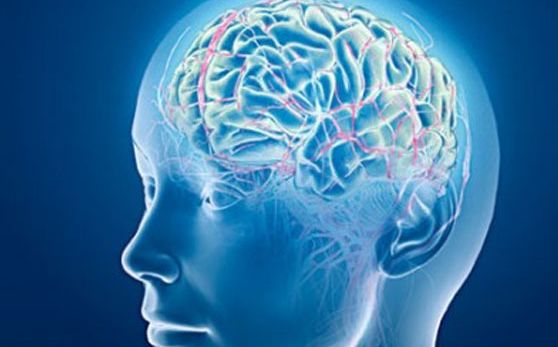First, let’s start using what dopamine is and why it is so important. Dopamine comes from a specific protein generally known as Tyrosine. Dopamine is an extremely vital neurotransmitter with a host of different role’s it plays within the body, several of which helps to compliment thinking processes. Memory, mental focus, concentration, emotional states, movement and sleeping are just a few of those vital roles. It has a crucial role in supporting both our physical and mental health.

Dopamine originates from an area from the brain referred to as substantia nigra. The substantia nigra is often a band of neurons that produce dopamine for the nervous system (CNS). The way in which the mind works is often a highly complicated technique of signals and nerve transmissions. Neurons within the brain actually release chemical messengers (generally known as neurotransmitters) through their synapses (nerve endings) that go one other synapses and create specific signals. Neurotransmitter’s are continually hitting theaters to the synapses and reabsorbed. This is why the brain will be able to communicate so efficiently.
Dopamine’s process in the mental faculties are highly complex, but I’ll try and break it into an amount where exercise session understand it. When increase dopamine is released, it a place to visit. Where it travels are classified as receptors. The dopamine molecule fits together as being a key and lock with the receptor, creating an action for your neuron. The material the dopamine molecule was carrying is then continued together with the neuron which it reaches and yes it continues until it spreads throughout the entire central nervous system. In the end of the receptors are filled up with the dopamine molecules, our bodies has to reuse the dopamine that wasn’t utilized. This is known as reuptake in medical terms. Re-uptake is a procedure that permits the dopamine levels (and other neurotransmitter levels) to be steady. There is also a process called the negative feedback loop that forestalls too much of a neurotransmitter from being produced. The problem with many people is the fact that their dopamine receptors become inactive or destroyed, and also the precursors to doopamine.
Obtaining the proper levels of dopamine within the brain and neurological system will ensure these:
Reduced cravings
Reduced addictions
Higher level of motivation
Reduced amounts of depression.
Reduced anxiety
Higher level of clarity and concentrate
Satisfaction in personal life
Healthy sex life
Low dopamine levels contained in a variety of ways in several people. The commonest negative effects experience are depression and laziness. Individuals will not have the energy and motivation to complete daily activities that they never had problems performing before. Making decisions and centering on activities also becomes a problem when dopamine levels are inadequate. could possibly have trouble focusing or selection. Becoming cold and the inability to lose fat are among the other common side effects of low dopamine levels.
Low dopamine levels can be created with a number of reasons. Many of the known causes to contribute to low dopamine levles are:
High intake of caffeinated foods and beverages
Alcohol
Fats. (junk food, inferior meat, etc.)
Refined foods including white sugar, white flour and white breads.
High levels of stress within the workplace at home.
Insomnia.
Poor dietary habits
Prescription drugs (consult your doctor for any set of which ones)
Illegal substance abuse (marijuana, cocaine, etc.)
I will enter detail a tad bit more on drugs and exactly how they influence dopamine on the physiological level. There are many drugs that have both good and bad effects on dopamine. There’s also specific enzymes that really help inside the break up of dopamine. These enzymes are known as monamine oxidase’s (most often known as MAO.) The molecules that bind to dopamine receptors and stimulate dopamine are known as agonists. For the opposite side with the coin, molecules that bind on the receptors and stimulate dopamine release are classified as antagonists. Simply speaking, agonists elevate levels and antagonists prevent dopamine from being released.
As stated before, illicit drugs negatively impact dopamine levels inside the brain and central nervous system. Some drugs, for example amphetamine (also known as speed) and cocaine manage to get thier desired physical effect by affecting the release of neurotransmitters inside the brain. Most people think they slow up the levels of dopamine, while in fact, they raise the amounts of dopamine. Physiologically, what they do is prevent dopamine re-uptake once it has been released by destroying receptors, thus preventing the negative feedback loop. Long term drug use produces a concept called sensitization, that is the place that the body will continue to produce more dopamine and more receptors because of the fact that they’re becoming destroyed along with the negative feedback loop becomes distorted. Long story short, avoid illicit drugs to ensure adequate neurotransmitter balances in the brain.
Now you are probably wondering ways to raise your dopamine levels, right? Well, for those who have ‘abnormal’ amounts of dopamine, you’ll be able to consume foods containing tyrosine to fix the imbalance. Almonds, sesame seeds, dairy products, bananas, and avocados are common good dietary causes of tyrosine.
Nutritional dopamine supplements can be one of the most efficient ways to raise your dopamine level as well as lowering most the outward symptoms listed above. You’ll find quite a few products for sale to date that will aid with dopamine levels. The dopamine supplement that individuals recommend most to patient’s and customers is Balance-D. It is a clinically proven supplement to raise dopamine levels. The medial side outcomes of NeuroScience’s Balance-D are very few in number with virtually no negative effects in in comparison with many drugs.
Dr. Jacob Canfield is often a chiropractor which has seen over 10,000 patient’s and it has special certifications in nutrition and professional grade supplements. She has practiced in Atlanta, Georgia and Detroit, Michigan and holds degrees in Biomedical Science and Biology.
For additional information about dopamine receptors you can check our resource: click for more info
